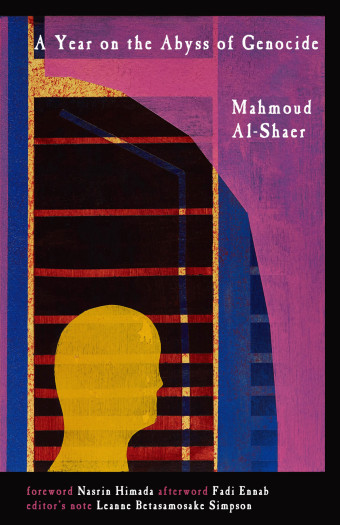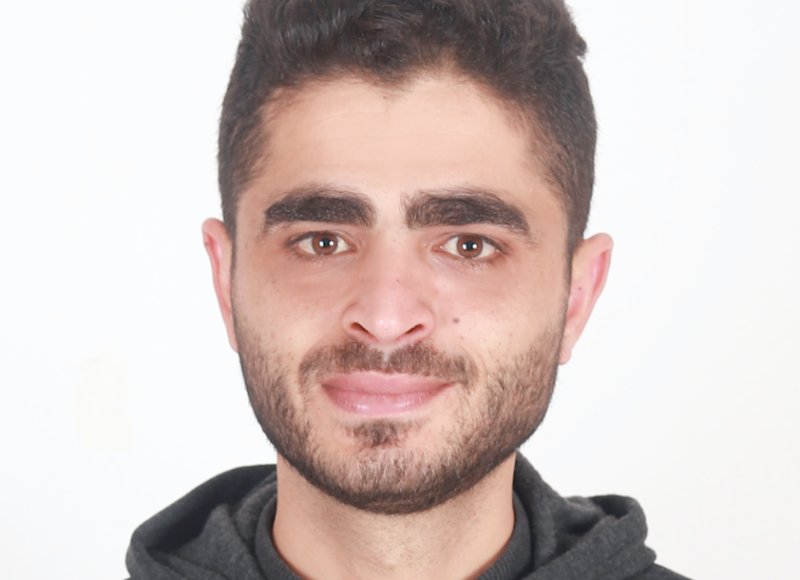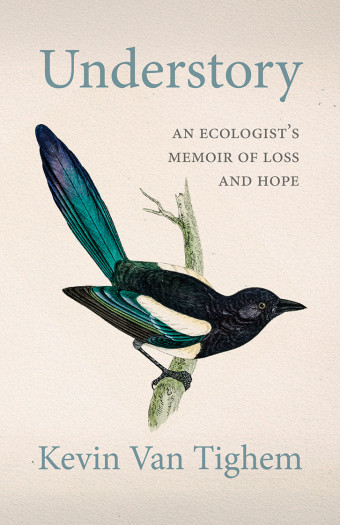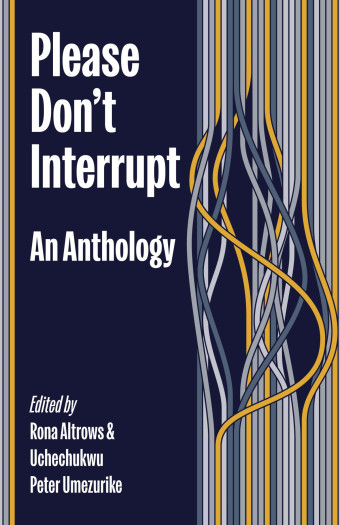For hundreds of thousands in Gaza, the Israeli military campaign following the Oct. 7, 2023, attack on Israel by Hamas has been a continuation of the Israeli government’s doctrine of settler-colonialism. Recent UN estimates show more than 684,000 Palestinians have been displaced, and 93 per cent of households face water insecurity.

- A Year on the Abyss of Genocide
- Mahmoud Al-Shaer, Leanne Betasamosake Simpson (Editor)
- Arbeiter Ring Publishing Ltd.
- $25.00 Hardcover, 136 pages
- ISBN: 978-19-27886-98-4
One of those households is that of Mahmoud Al-Shaer, who began an online fundraiser in January 2024. Regular updates on his family’s experiences became the core of his new book, A Year on the Abyss of Genocide.
Al-Shaer is a longtime poet and writer known for his work editing the literary journal 28 Magazine, curating Gallery 28, and coordinating the cultural program at Al-Ghussein House in Gaza’s old city.
He also served as guest curator of the Palestine Festival of Literature in 2023, at which time he connected with Leanne Betasamosake Simpson, a Michi Saagiig Nishnaabeg musician, writer, and academic, who was invited to participate. Simpson, who holds a PhD from the University of Manitoba, is a fellow ARP Books author and the editor of Abyss.
Over the year recounted in Abyss, Al-Shaer writes of his family’s daily struggle to find food, water, and electricity, among other necessities. He and his wife Hadil strive to raise their daughter Nai. Their son Majd was taken to Turkey by Al-Shaer’s mother for critical medical treatment in November 2023 and remains there.
Al-Shaer and his family’s own attempts to leave Gaza and reunite are thwarted. They lose their home when they are removed to be taken to a camp, where conditions are even worse; they have been displaced six times since May 2024.
“Hunger dominates our days,” he says, in an interview via email from Gaza in July 2025. “Fear anchors our nights. We haven’t stepped outside in over two weeks due to the escalating violence and the collapse of public order.
“What sustains us is hope: the possibility, however faint, that we will be granted permission to evacuate. Until then, we live on the edge of survival.”

The ongoing events beggar the imagination. “From the beginning, this genocide has demanded of us not survival – but the ability to narrate survival in real time,” Al-Shaer says.
“When the Al-Ahli Baptist Hospital was bombed and over 600 people were killed in one night, I realized: there is no sanctuary, no immunity. We all became moving targets.”
His accounts, as difficult as they were to write, and to read, were at least an action he could take. “Writing, for me, became both ritual and resistance,” he says.
Support through his GoFundMe fundraiser has helped pay for Majd’s medical treatment and his mother’s chemotherapy.
“I remember the day friends visited my mother’s bedside and held her hand, while others stood beside Majd in another ward, in another hospital,” he says. “That solidarity kept us alive.”
As for what Al-Shaer hopes readers will take from Abyss, he says, “This is not just a book – it’s my archive of survival. I don’t know if I’ll live to see a future where I can heal. But I know that these words, collected over hundreds of days, speak of a life that refused to vanish. I hope the book proves, simply, that we are not ‘human animals’ [as the former Israeli Defence Minister Yoav Gallant called us].
“That we are poets, parents, lovers, and dreamers. That we resist not only bombs but silence.”













